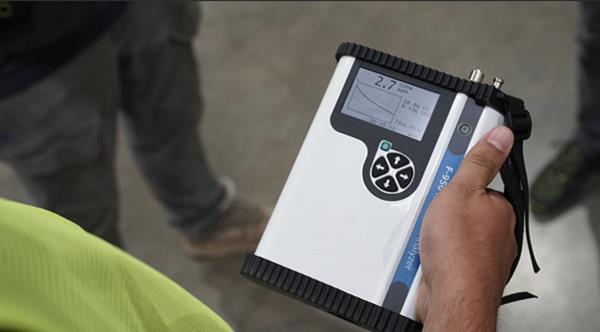Four reasons to monitor ethylene in agriculture supply chain
On each development stage, plants generate ethylene, which can be harmful or beneficial. Monitoring gas levels in the supply chain can minimize yield loss. There are four reasons to monitor ethylene in agriculture supply chain.
1) Ripening
Ethylene is a colorless and odorless gas that diffuses between fresh produce. It is essential for ripening of climacteric fruits, such as mangoes, apples, avocados, tomatoes, bananas, among others. Ethylene is monitored in the postharvest stages and on the farms. Producers intend to keep their fresh produce at lower temperatures during storage to decrease ethylene production. If the ethylene is detected, they remove it by scrubbing, minimizing concentrations. Once ethylene is generated, fruit and vegetables ripe, over-ripe, and decay, becoming unmarketable.
Non-climacteric fruits, like grapes, cherries, and strawberries, do not need ethylene for ripening. However, some of them are ethylene-sensitive (carrots, cauliflower, onions, beans, eggplants, watermelons) as the hormone causes decay and senescence. These ethylene-sensitive fruits should not be stored near climacteric fruits to avoid spoilage.
2) Bruising
Ethylene is the stress hormone, and a fruit will release gas in response to abiotic stress, like hypoxia, wounding, and chilling. All cells contain small quantities of Ethylene, but its levels rise in stressed cells and tissue.
Regular monitoring of ethylene levels with non-destructive gas analysis tools can prevent spoilage of fruits before visual symptoms appear. These can be sorted out to prevent ethylene from spreading to other fruits and vegetables and triggering premature ripening.
3) Detecting Fungal and Insect Attacks
Plants that suffer biotic stress from pathogens will also trigger ethylene release in the affected tissue. The presence of pathogens preharvest, damage and bruising to the external skin during transportation or inadequate storage conditions can spread diseases during the supply chain. To identify biotic stress before it spreads, stakeholders can non-destructively measure ethylene levels.
4) Sprouting
Ethylene is present at higher levels in meristem tissue and plays a key role in root initiation, resulting in the sprouting of potato tubers. Potato is stored in large volumes, under low temperatures and ventilation, to prolong storage time and minimize sprouting by decreasing ethylene levels. When ventilation levels are low, the ethylene concentrations in bins can go up, and there will be more sprouting, which results in a weight loss of tubers.
Monitoring respiration and ethylene levels can efficiently control sprouting and quality loss in potatoes that will be stored for months.
Felix Instruments offers solutions to help in monitoring ethylene levels of different concentrations and guarantee that ethylene-sensitive fruits, vegetables, and flowers are stored properly. Learn more about each of them:
F-901 AccuStore & AccuRipe for monitoring and controlling storage and ripening rooms;
F-920 Check It! Gas Analyzer for the entire supply chain and greenhouse;
F-950 Three Gas Analyzer for greenhouses and the whole supply chain; the F-960 Ripen It! Gas Analyzer for the ripening rooms
F-940 Store It! Gas Analyzer storage facilities and retailers.
For any further information about Felix Instruments, please send your inquiry





